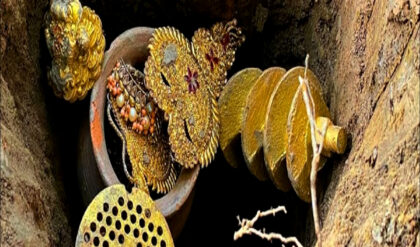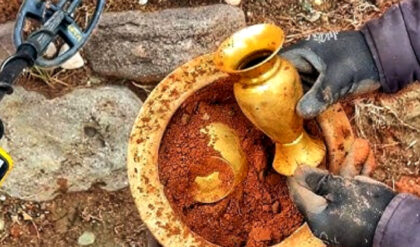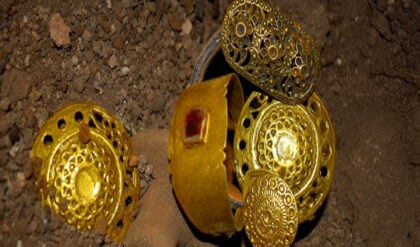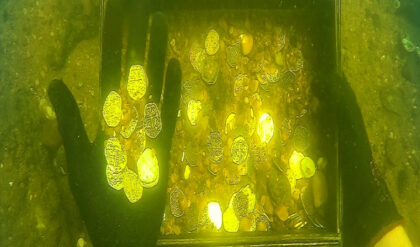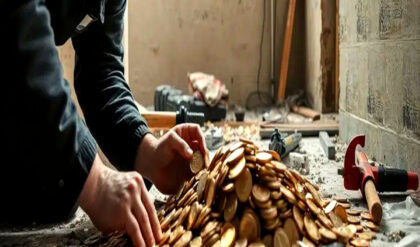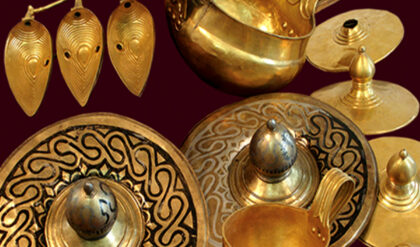The baby albino turtle who was born with his heart OUTSIDE his body has survived (despite having a condition so rare that vets have yet to give him a name)
A baby albino turtle born with its heart beating outside its body has defied the odds and appears to be thriving despite its handicaps.
The tiny reptile, known as Hope, suffers from a disease so rare that it has not yet been given a name in veterinary medicine.
A similar condition in humans is called ectopia cordis and affects approximately one in every 126,000 births.
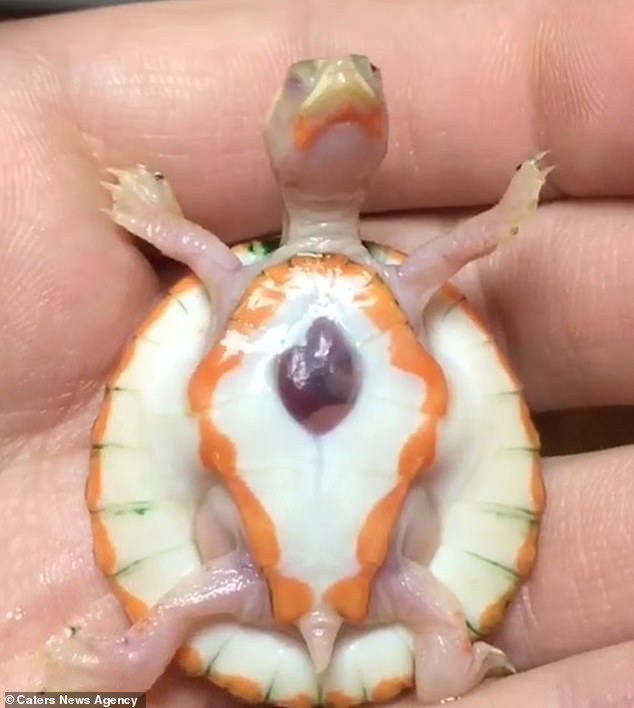
The little reptile, known as Hope, has a condition so rare it has yet to be named in veterinary science. She is albino and has her heart outside the correct cavity (pictured)
Owner Mike Aquilina, known as AquaMike on Instagram, cares for the Albino Pinkbelly Sideneck at his home in New Jersey.
He received Hope from his friend Gerard, an American turtle breeder.
Aquilina, 29, said: “Hope has impacted my life in so many ways that it really excites me.”
‘She is so small and so fragile, the most delicate thing, but she is not afraid. People can see that and she has a lot of people supporting her around the world.
‘She is spreading hope and at the same time giving me hope. “Hope has changed my life for the better in such a short time.”
Hope’s guardian doesn’t have any guidelines to follow when caring for this unique animal, so she says she uses “common sense” and provides extra care.
But unfortunately for Hope, this means she must be kept separate from the other turtles for the foreseeable future.
WHAT IS CORDIS ECTOPIA?
Ectopia cordis affects approximately one in every 126,000 births.
It occurs when the heart is born outside the thorax since the wall does not form correctly and the organ ends up outside the protective layer.
Partial ectopia cordis may occur involving the heart outside the wall but within a layer of skin.
Complete ectopia cordis occurs when the heart is outside the chest wall, with nothing, including the skin, to protect it.
This condition may include deformities of the chest (chest), abdomen, or both.
Often, ectopia cordis is also accompanied by defects of the heart itself.
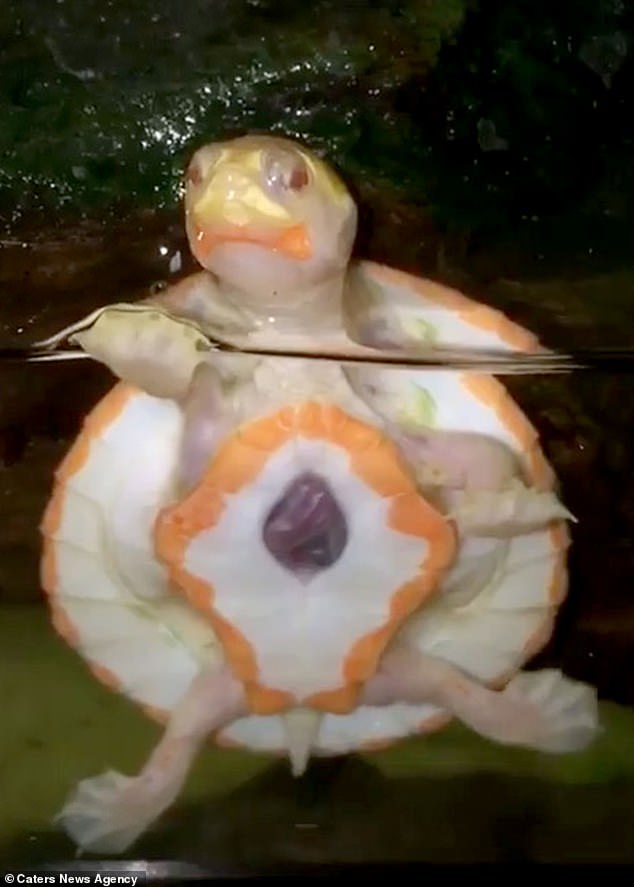
This rare heart defect is unknown in the Pinkbelly Sideneck species, but a similar condition in humans is called ectopia cordis and affects approximately one in every 126,000 births.
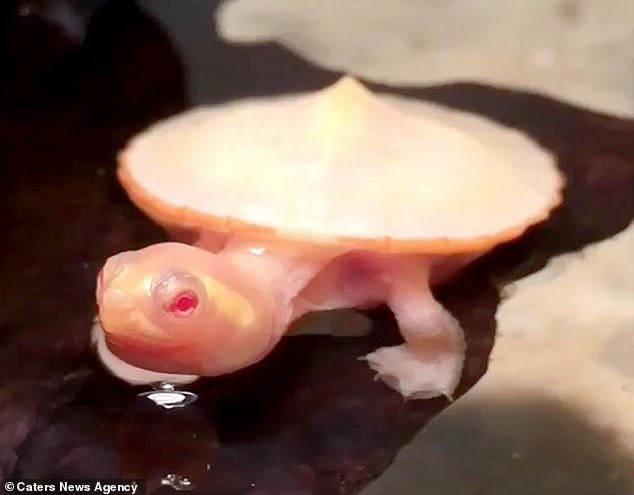
Hope’s guardian doesn’t have any guidelines to follow when caring for this unique animal, so she says she uses “common sense” and provides extra care. But unfortunately for Hope, this means she must be kept separate from the other turtles for the foreseeable future.
Aquilina added: “I keep her water very clean, give her the softest basking area possible and touch her as little as possible.”
‘I have opted for the more natural and completely sterile approach.
“The goal is to keep your deformity clean and your immune system strong.”
‘I can’t risk another turtle accidentally puncturing his heart chamber.
‘Maybe someday in the future, when I’m older and less susceptible to bacterial infections. For now, he has to live in a kind of bubble.
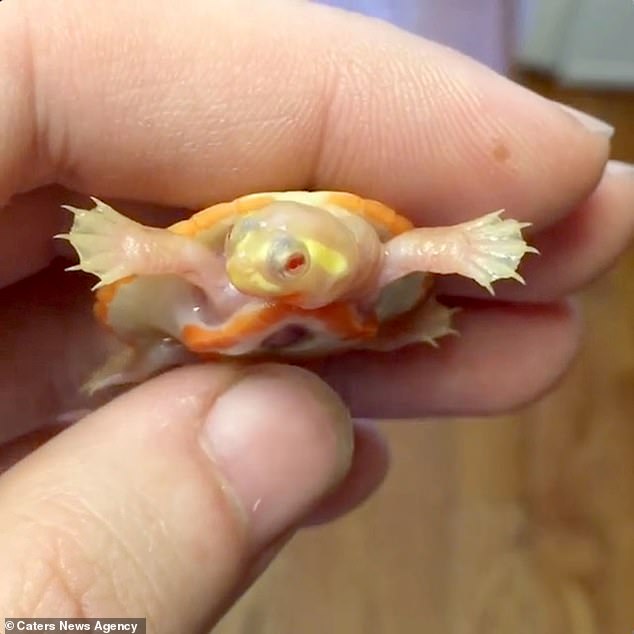
Owner Mike Aquilina, known as AquaMike on Instagram, cares for the Albino Pinkbelly Sideneck at his home in New Jersey. Aquilina, 29, said: “Hope has impacted my life in so many ways that it really excites me.”
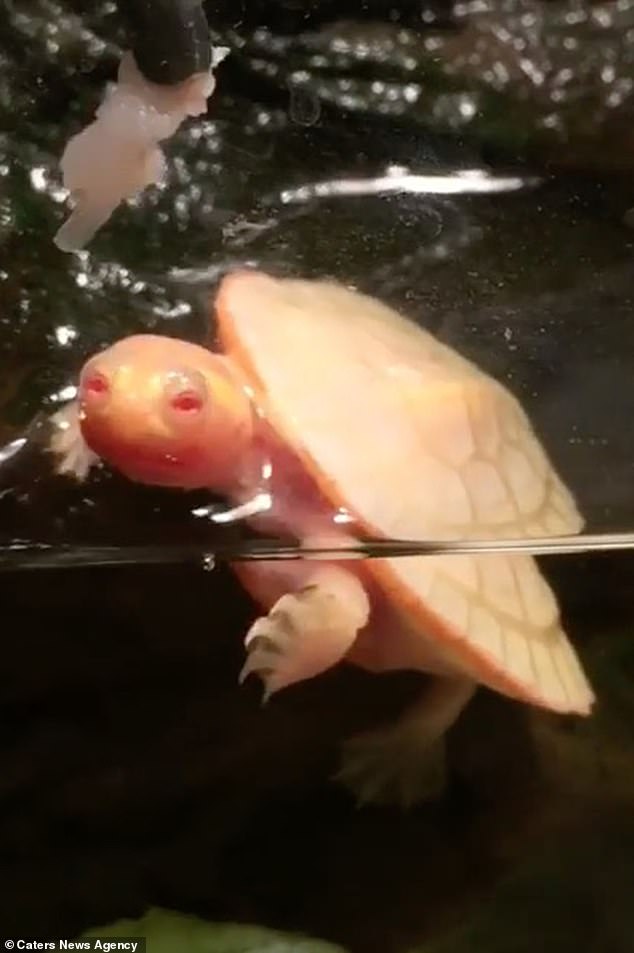
All of Hope’s food and medical supplies are supplied by ZooMed Laboratories, leaving the little turtle free to sunbathe and eat as he pleases. There are currently no plans for surgery to correct his deformity.
All of Hope’s food and medical supplies are supplied by ZooMed Laboratories, leaving the little turtle free to sunbathe and eat as he pleases.
There are currently no plans for surgery to correct his deformity.
“She is a very eager eater. Hope loves Mysis shrimp and I remove the tough outer skin to make it easier for her to swallow and digest,” Mr. Aquilina said.
«The same goes for frozen krill and silversides. He also likes frozen clams, snails, and bloodworms.
The turtle that brings hope to humanity
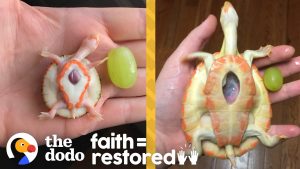
“Hope really gave me the opportunity to connect on a deeper level with people. So it’s no longer just about helping animals, it’s about helping animals AND people thanks to Hope. There are many more things that I am really proud of. We made the news, we were on TV, a lot of different opportunities came about because of Hope. Everything about keeping it, having it and being able to give it a life is really, very rewarding.”
Mike says many people think you can’t connect with a turtle like you can with a cat or dog. However, he and Hope share a very beautiful bond. Every time Mike comes home from work, she starts waving her arms and splashing in the water. She always gets excited when she sees him, like a dog does when his owner comes home from work. His arm movement is similar to that of a dog who wags his tail when he is happy! She is a very playful turtle and Mike enjoys every second he spends with her.
When he first brought the little turtle home, he immediately started posting about it on social media. So far he has inspired thousands of people, which makes his name very appropriate. He even has his own stuffed animal and vinyl figure! All profits help raise money for charities.
Mike can’t believe he’s come this far on his journey. He says what inspires him most about Hope is that she doesn’t let her condition stop her from living her life. She is the only turtle with an exposed heart in the world, making her truly unique.
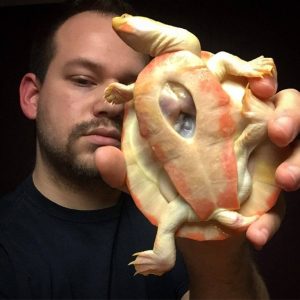
Final Thoughts: I hope the once little turtle inspires thousands of people every day
You can find inspiration everywhere if you look hard enough. Of course, no one would expect a little turtle to restore their faith in life. That’s exactly what Hope has done for humanity: reminding people that they too can beat the odds. Mike adopted her when she was the size of a quarter, although everyone doubted she would survive.
Fortunately, he is now a happy, healthy adult turtle who got a second chance at life thanks to Mike. We hope you enjoyed this touching story! Let us know what you think in the comments.
